Average sizes and life expectancy for this breed:
The American Akita is the larger and more heavily boned of the two types of Akita. They were developed around the mid-20th century from the fighting dogs of Japan. The most obvious difference between the Japanese Akita and the American Akita, aside from their size and structure, is their coat colour. The American Akita is acceptable in all colours, while the Japanese Akita is only allowed to be fawn, sesame, red, brindle, or white. Furthermore, American Akitas can have pinto and black masks, unlike Japanese Akitas. In fact, this is already a disqualification in the show ring for the latter dog breed.
The American Akita belongs to the Utility group of dog breeds and is considered to be the largest breed in that category. Akitas originated in Japan, where they were developed to hunt deer, bears, and wild boar. Sadly, they were also used in fighting competitions because of their size and build.
Akitas are noted for their loyalty and devotion. These affectionate dogs are known to follow their human companions from room to room to keep them company!
However, American Akitas have a domineering streak, particularly with other dogs. They are independent-minded and highly protective of their pack. So, care should be taken when guests enter your home. You will also want to ensure your American Akita has been fully socialised and trained from puppyhood to curb this trait.
When it comes to children, America Akitas are loyal and loving. But of course, all interactions between them should be supervised.
Aside from their extreme loyalty, American Akitas are known for being very clean. They have even been described as cat-like because of their intense cleanliness and lack of the traditional ‘dog smell’.
See available puppies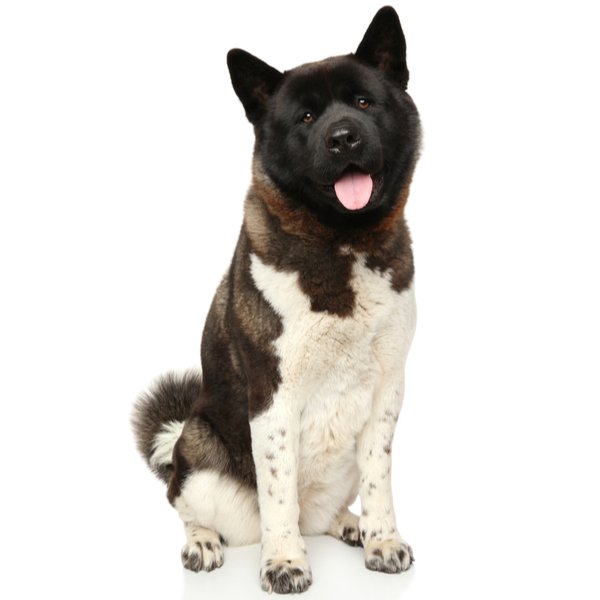

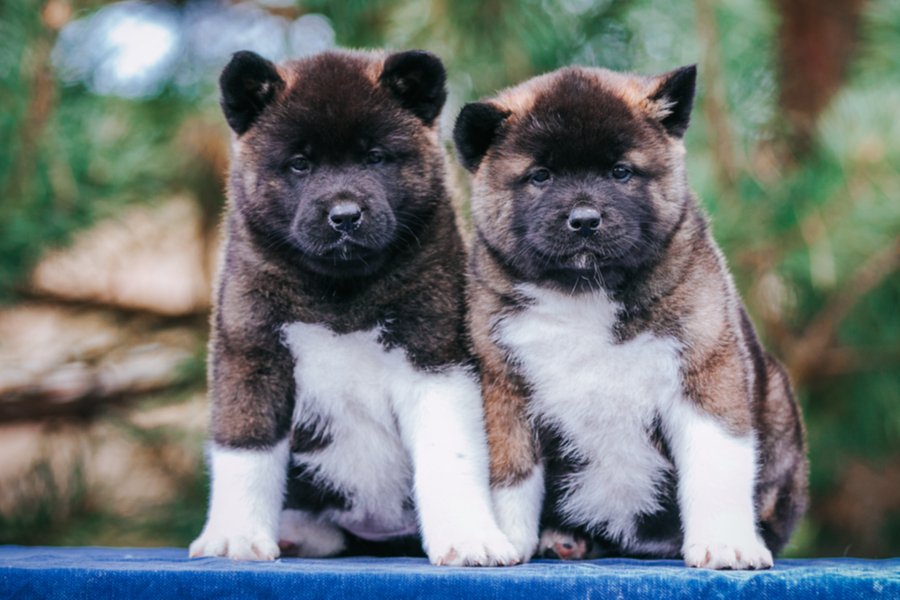


American Akitas are descendants of the Japanese Akita which originated in the mountains of Northern Japan. The latter was bred to hunt bears and guard homes. Over the years, these dogs were bred with the Mastiff and the Tosa to increase their size for dogfighting competitions.
American Akitas did not have a distinction until after the Second World War when American soldiers brought Japanese Akitas back to the States with them. These servicemen were drawn to their large, “bear-like” appearance. However, it’s thought that Helen Keller was the first person to bring Akitas to America after she was gifted a pair by the Japanese government in 1937.
At this time, all Japanese Akitas were ordered to be exported to other countries such as America, or killed by the Japanese government. However, many devoted owners released their pets into the wild where they mated with wild dogs. Others bred them with German Shepherds to save the breed. This led to the development of three distinct types of Akita; the Matagi Akita, Fighting Akitas, and Shepherd Akitas.
In 1955, the American Akita was recognized by the American Kennel Club and placed in the Miscellaneous class. But the breed standard for the Akita was only approved in 1972 and was moved to the working class.
The American Kennel Club halted registering further Japanese imports so the American Akit could develop their own distinct bloodline and characteristics. The American Akita Club was founded in 1956.
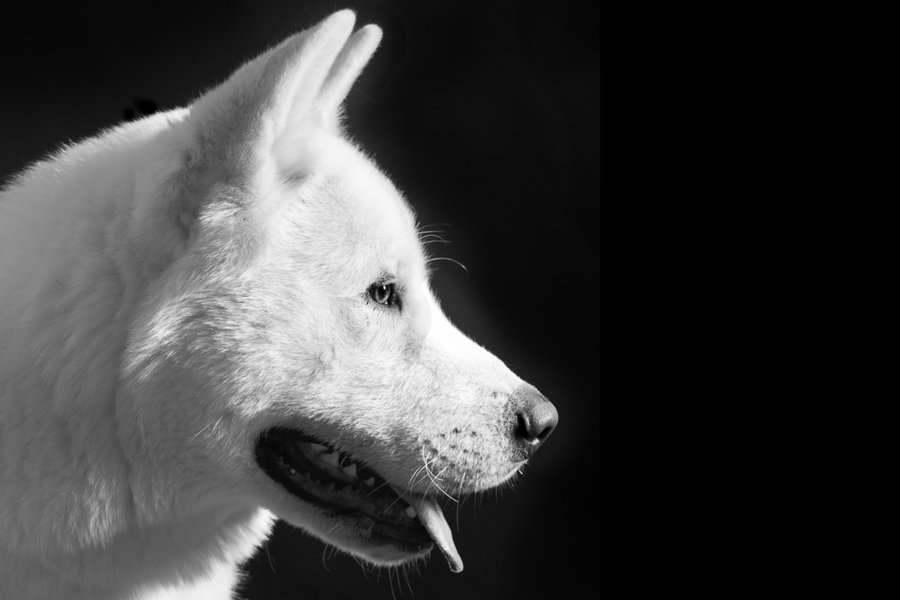
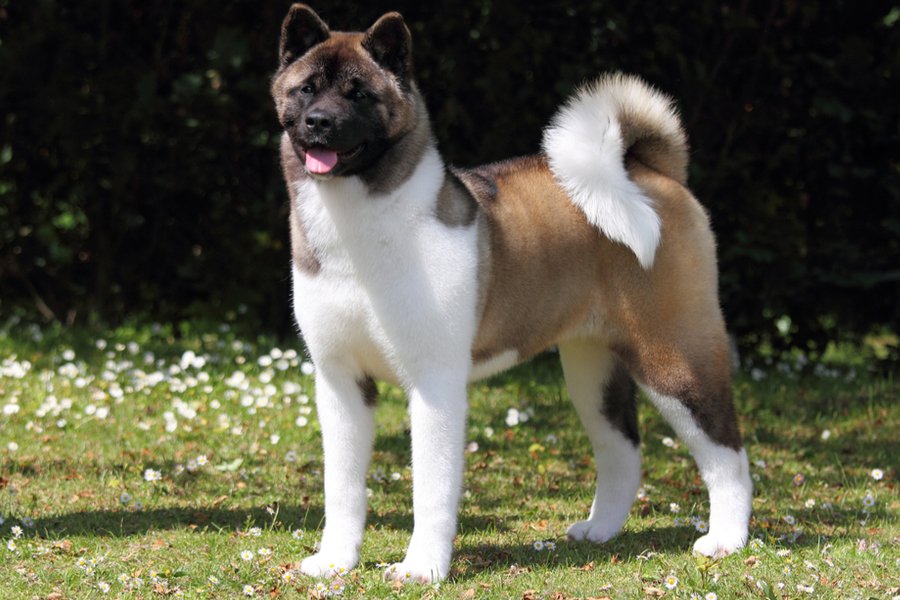
The American Akita is seemingly identical to the Japanese Akita in many ways. They are both muscular and very strong dogs. They both have large and powerful bones. Their head is large but in proportion with the rest of the body. It is in the shape of a blunt triangle, and when they are relaxed, it is free of wrinkles. Their broad skull is flat in between the ears. Between the eyes is a shallow furrow that runs well up to the forehead. Their well-defined stop is not abrupt.
These dogs have a broad, full, and deep muzzle which is two-thirds the length of their skull. Their lips are black, and their tongue is pink. American Akita’s eyes are small, deep-set, and dark brown in colour. Their eye rims are black and tight. Their ears are erect and small compared to the size of their body. They are triangular-shaped, broad at the base, and carried forward. Their muscular necks are thick, fairly short, and widen toward the shoulders, which are powerful and moderately laid-back.
The American Akita is a little longer than it is tall. The chest is deep and broad with well-sprung ribs. The back is level, and their loins are firmly muscled. Their forelegs are heavily boned and straight, while their hindquarters are strongly muscled. These dogs have cat-like feet that are well-knuckled up with thick pads. American Akitashave large, well-feathered tails that are set high and carried over the back. They also have a ¾, full, or double curl that dips below the level of the back.
These beautiful dogs have a double coat that boasts a thick, short undercoat and a harsh outer coat that stands away from the body. The hair on their head, ears, and lower legs is short, but it is longer over the rest of the body. The hair on their tail is the longest and most abundant. American Akitas come in a range of coat colours including:
White Akitas must not have a ‘mask’, however, others are allowed. The undercoat may be a different colour from the outer coat.
American Akitas are extremely devoted and loyal to their families. They also have intenseguarding and protecting instincts, so they make excellent watchdogs. However, Akitas can be wary of strangers, especially other dogs. Intense training and socialization from puppyhood will help to tame this trait.
American Akitas are known to be good with children in the family. However, you need to make sure that you supervise every interaction to prevent any accidents because American Akitas are incredibly strong. American Akitas will gladly share their silly antics and playful characters with the people they know and love. Furthermore, Akitas are not known to be big barkers, only making a noise when necessary.
These alert, dignified, and loyal dogs are often described as cat-like in nature because they have a tendency to groom themselves and their family members. They are incredibly protective and territorial, so they need an owner who knows how to cater to their unique needs
Akitas do not generally do well with other dogs, so it’s recommended to keep your dog on a leash when out and about. Moreover, you need to ensure you have the time to devote to the intense training needs of this breed.
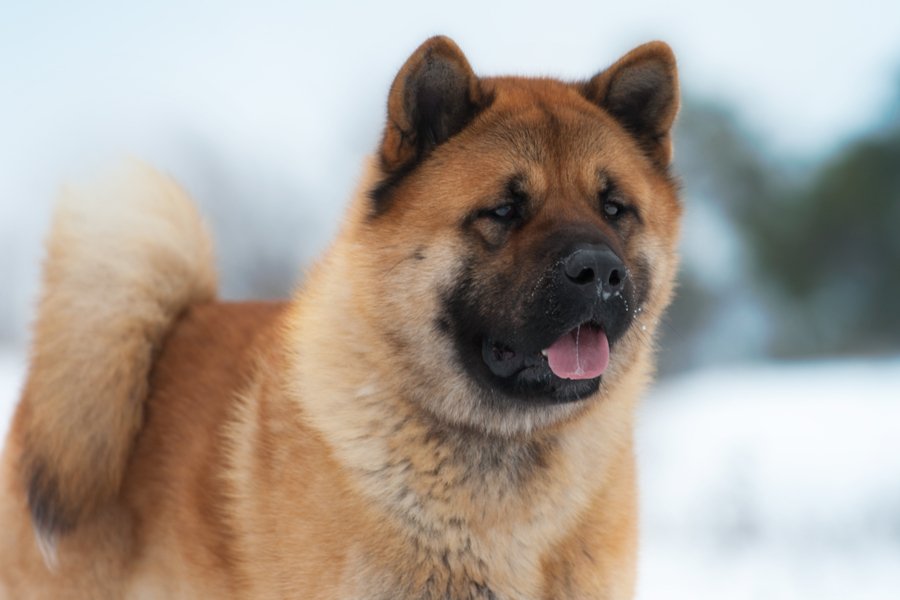
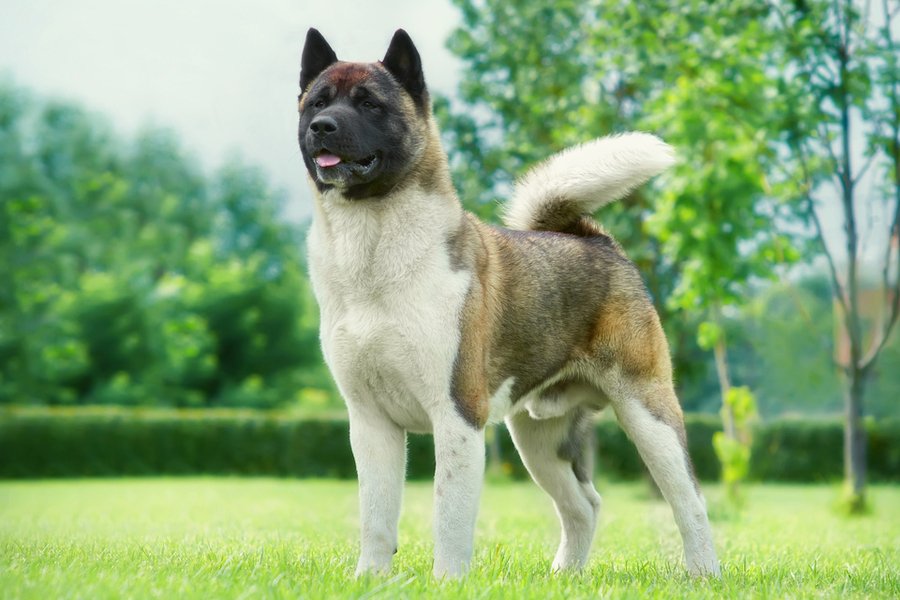
You must start training an American Akita as early as possible, which includes socialization to curb their high protective instincts because they are very independent and willful. Show them as many new situations, places, people, and other animals as possible so they grow into well-mannered and well-balanced dogs.
It is also worth noting that American Akitas can be territorial of their families and property. Even if socialization is practiced and done properly, not all Akitas will be responsive and accepting of other dogs, especially of the same sex. So, they are better suited to homes where they can be the only pet.
Training is vital for American Akitas, especially given their size, guarding instincts, and powerful physique. Crate training works very well for these dogs as well as positive reinforcement and respect training. Remember that American Akitas must know who the boss in the household is! It is also a good idea to conduct training sessions in a quiet room free from distractions because they get bored or distracted easily. Make training sessions fun but firm to get the most out of your American Akita.
As for potty training, it is generally very easy to housetrain an Akita because they are obsessive about cleanliness. Some American Akitas have even been known to potty train themselves!
The American Akita has a double coat that shields them from the weather and harsh elements. So, regular brushing is essential to keep their coat healthy, shiny, and in tip-top condition. When bathing your dog, use vet-approved products and refrain from bathing them too often because this can lead to skin issues.
Brush their coat at least 2-3 times a week throughout the year. However, during Spring and autumn, daily brushing is a must because American Akitas shed their coat excessively. During this shedding period, examine the body while brushing their coat, as some dogs are prone todeveloping eczema during this period.
Check your American Akita’s ears weekly for dirt, debris, and wax buildup. Use a moistened cotton ball with an ear cleanser suggested by your vet. Never use cotton swabs inside the ear canals because they can cause damage. If you observe any foul smell, inflammation, tenderness, soreness, or they frequently shake or scratch their head, visit your vet for a checkup as this may be an indication of an infection.
For their dental hygiene, daily brushing is ideal for preventing tooth and gum diseases and bad breath. But brushing your dog’s teeth at least twice a week is adequate to get rid of any bacteria and tartar buildup. Ask your veterinarian which dental products are best for your American Akitato to efficiently clean their teeth, gums, tongue, and mouth
Check and trim their nails once or twice a month or as needed. Remember that very long nails can be painful for your American Akita as it can lead to splitting, tearing, and other health issues. If you are uncertain about cutting your own dog’s nails, you can ask for tips from your vet or a professional groomer.
During each grooming session, check your dog’s body for wounds, rashes, and other indications of infections such as inflammation, tenderness, and swelling on their skin, mouth, ears, nose, and feet. Your American Akita’s eyes must be clear without any discharge or soreness.
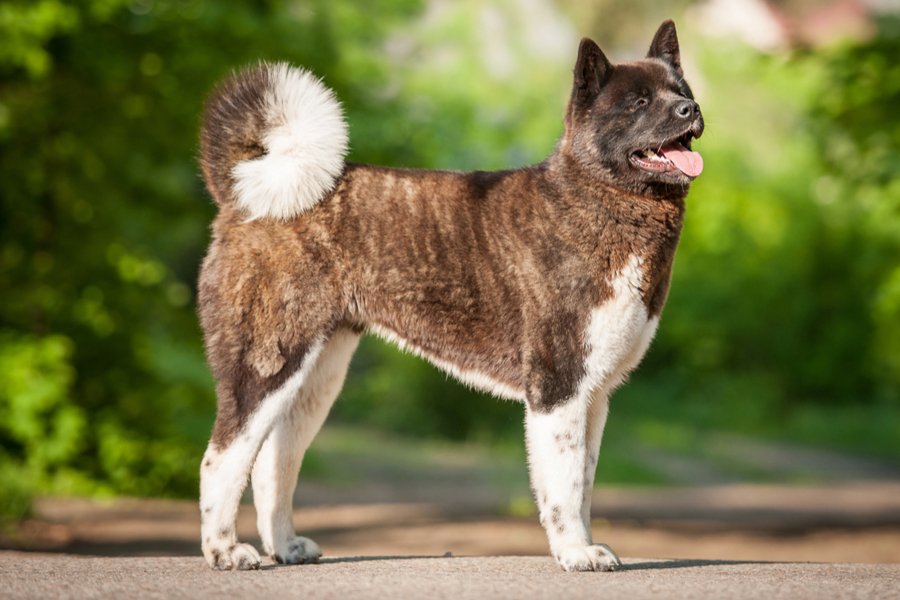
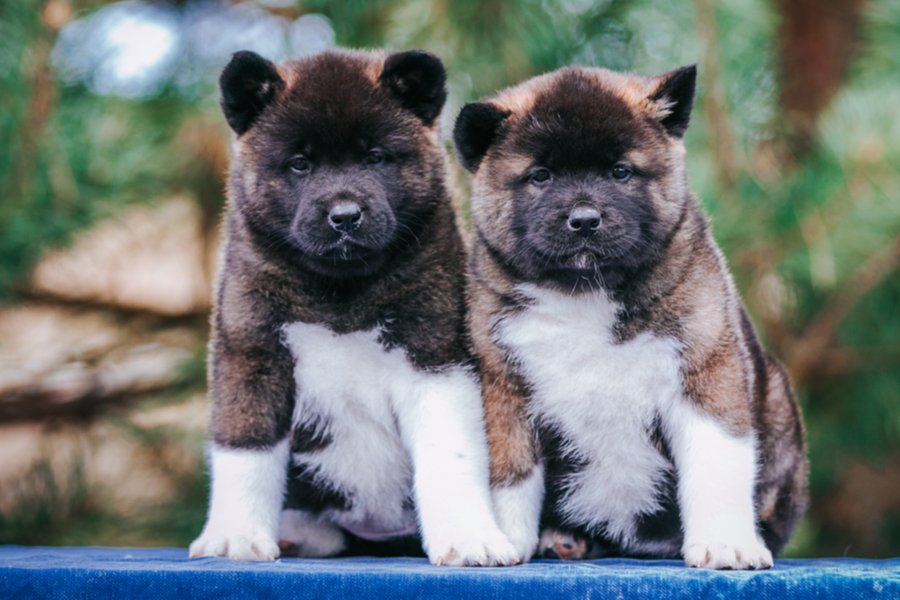
The American Akita is a robust dog breed. However, they are prone to developing certain health conditions that are worth noting. Always purchase a puppy from a licensed and trustworthy breeder to ensure they have been well cared for. Many breeders will also perform tests to check for any underlying health issues.
American Akitas can develop a number of health issues throughout their lives including:
American Akitas are known for their intense loyalty and devotion to their human companions. They are generally good with children in the family; however, they are naturally wary of all strangers including other adults, kids, and dogs. Always supervise any interaction between a child and an American Akita because these are large, powerful dogs.
American Akitas are not fond of other dogs as a general rule. So, they prefer to be the only pet in the household. Furthermore, these are natural hunting dogs so are not suitable for homes with smaller animals such as rabbits, cats, or rodents. If you have the time and commitment to devote to an America Akita, you will have a loving, protective, and steadfast companion for years to come.
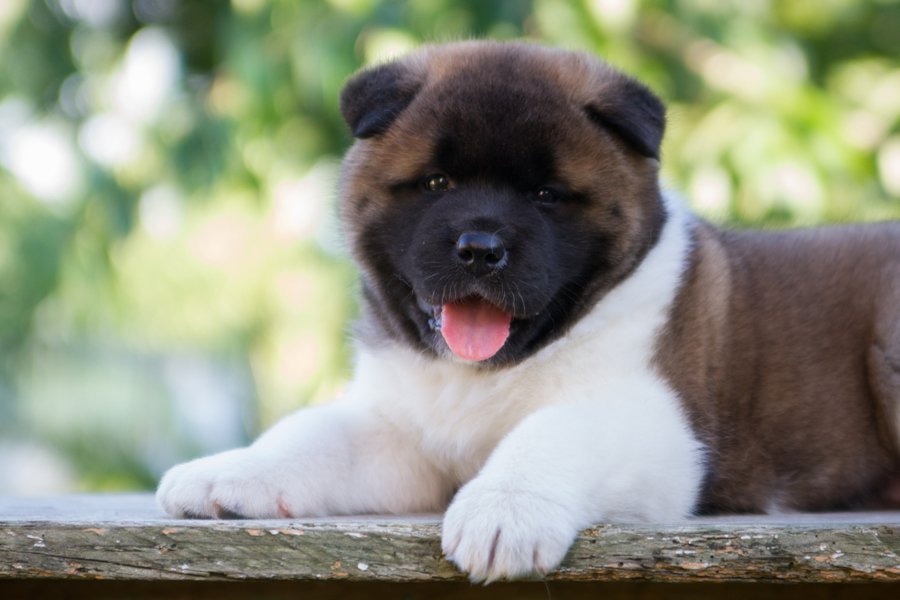
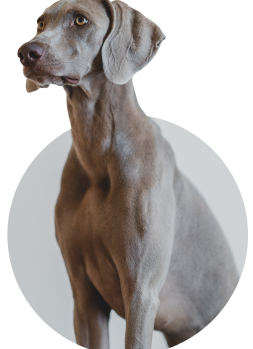
We can connect you with Breeders that are specialized in this particular breed.
See available puppies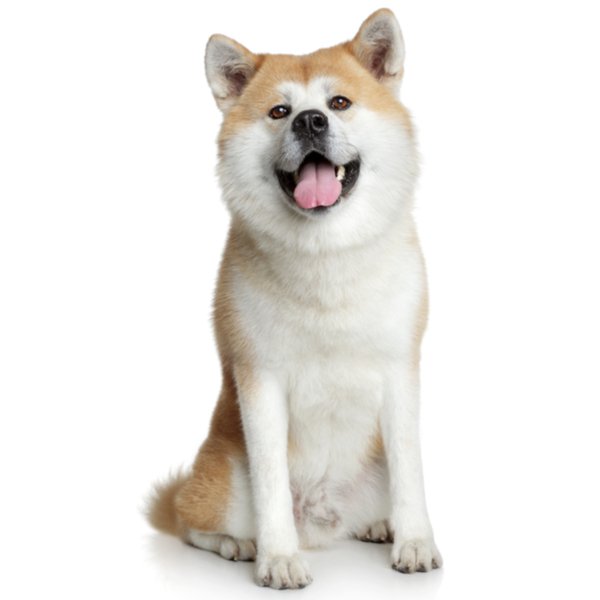
Japan
Size : Large
Coat : Short
Registration : KC, AKC, FCI
Exercise : 2 hour
Training : Time Consuming
Grooming : Twice a Week


Need some advice?
Whether you're a first time pet owner, an experienced pet owner, a new or long-time breeder, or just curious about pets, we've got you covered!
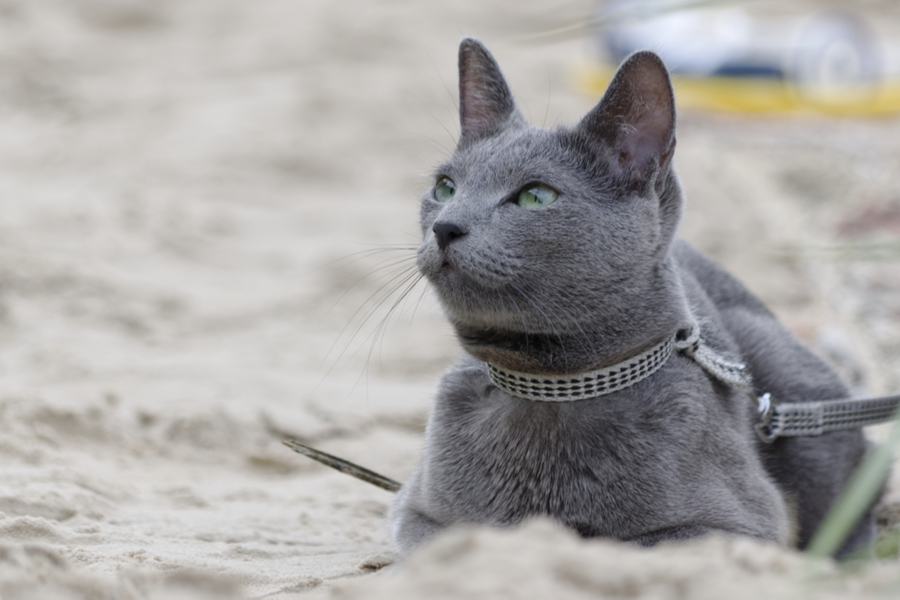
January 17, 2024
What Is The Personality Of Russian Blue Cats?
Russian Blue cats are most known for their distinctive shimmery blue-silver coat and piercing green eyes. However, this breed’s calm and gentle temperament is what makes them shine the most in the feline world.
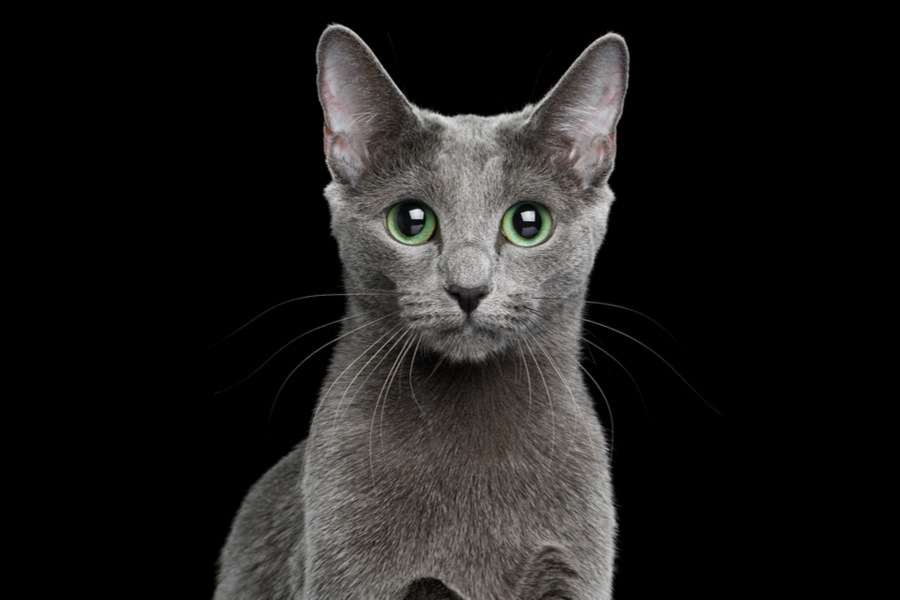
January 17, 2024
10 Facts About Russian Blue Cat Breed
Russian Blues are one of the most aesthetically stunning cat breeds, with a gorgeous plush silvery coat and vibrant green eyes. However, it’s not only their appearance that is beautiful; their nature is too.
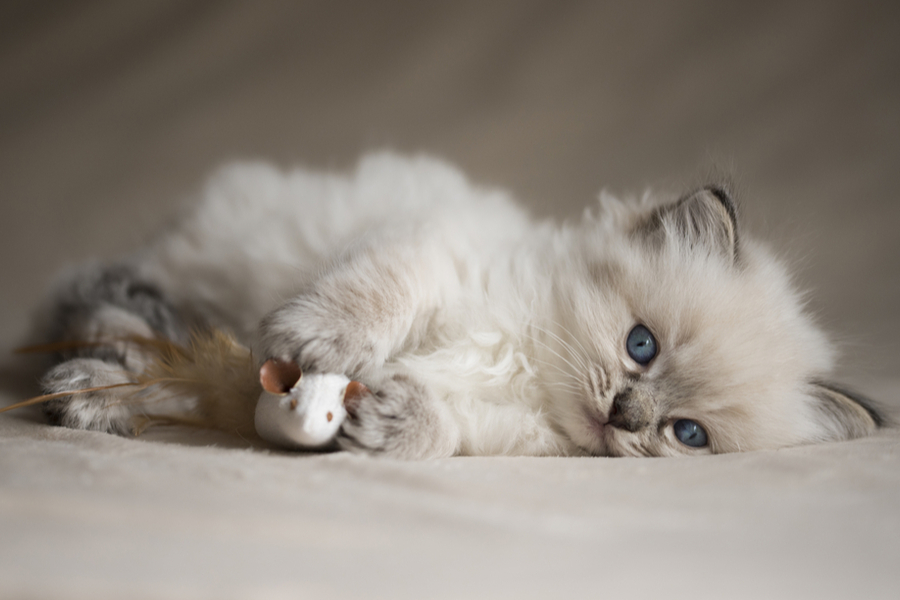
January 17, 2024
How To Choose The Right Cat Breed for You
Cats can make the most fantastic animal companions; they are adorable, friendly, and loving. However, not all felines are created equal. There are many different breeds, of which each has its unique personality traits.
Need some help?
Contact us to speak to our friendly advisor, who will gladly help you find your dream pet!



We are registered in England and Wales under registration number 12568840,
and our registered office is at 58-60 Kensington Church Street, W8 4DB London, England.
© 2023 The Pedigree Paws